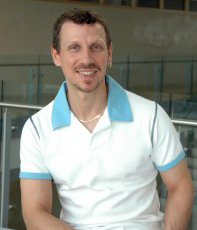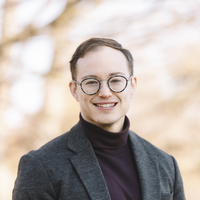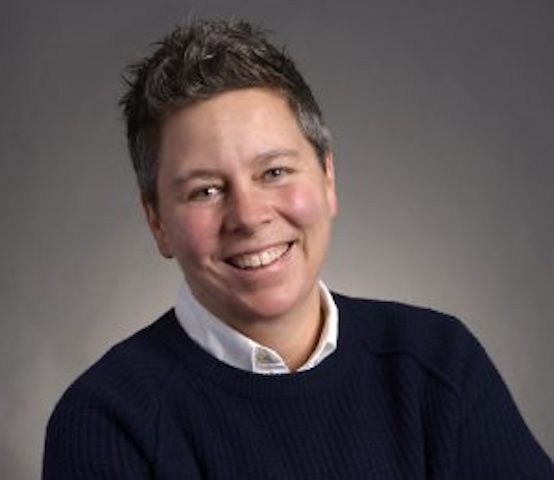TORONTO, June 15, 2021 – The pandemic has put a damper on many events this year, including the 40th anniversary of the Pride Toronto celebration and parade, but it has also affected LGBTQ+ communities in other ways.
York University experts are available to discuss the effect of the virus and lockdowns on Pride, LGBTQ+ communities, including LGBTQ+ refugees and asylum seekers, as well as transgender people already facing health-care inequities and long waitlists for surgeries before COVID-19. They can also talk about how the pandemic has shifted ideas about risk and safety in ways that affect sexuality and sex education for youth.
 Nick Mulé is an associate professor in the School of Gender, Sexuality and Women’s Studies in the Faculty of Liberal Arts & Professional Studies, co-ordinator of its Sexuality Studies Program, and cross appointed to the Faculty of Health. His research interests include the social inclusion/exclusion of LGBTQ+ populations in social policy and service provision. He also engages in critical analysis of the LGBTQ+ movement and the development of queer liberation theory. Mulé is the founder, past chairperson and a member-at-large of Queer Ontario. He can speak to the following:
Nick Mulé is an associate professor in the School of Gender, Sexuality and Women’s Studies in the Faculty of Liberal Arts & Professional Studies, co-ordinator of its Sexuality Studies Program, and cross appointed to the Faculty of Health. His research interests include the social inclusion/exclusion of LGBTQ+ populations in social policy and service provision. He also engages in critical analysis of the LGBTQ+ movement and the development of queer liberation theory. Mulé is the founder, past chairperson and a member-at-large of Queer Ontario. He can speak to the following:
- Pride’s trajectory over the past 40 years
- Need for Pride to connect better with the LGBTQ+ communities
- Need for Pride to hold to community principles of inclusion, accessibility and political will (i.e., keeping the police out of the Pride parade)
- Impact of COVID-19 on LGBTQ+ communities, including LGBTQ+ refugees and asylum seekers
- Addressing internal divisions within LGBTQ+ communities
 Kinnon Ross MacKinnon is an assistant professor in the School of Social Work in the Faculty of Liberal Arts & Professional Studies and is an expert on gender-affirming care policy and clinical practices. He studies access to health-related services for queer and trans people. He can discuss:
Kinnon Ross MacKinnon is an assistant professor in the School of Social Work in the Faculty of Liberal Arts & Professional Studies and is an expert on gender-affirming care policy and clinical practices. He studies access to health-related services for queer and trans people. He can discuss:
- Transition-related hormone and surgery access inequities in Canada
- 2SLGBTQ mental health
- Political-economic dimensions shaping the availability of 2SLGBTQ health services;
- Digital health-care services and education
- Community-engaged research methods for and with 2SLGBTQ populations
 Jen Gilbert is an expert in sexuality education, consent, gender and LGBTQ+ issues in the Faculty of Education. She has conducted extensive research on LGBTQ+ issues in education, youth understanding of sexuality and gender, and sexual health education. She led the international collaborative research project, Affective Beginnings: LGBT Issues in Teacher Education and the Between Yes and No: Rethinking Discourses of Consent in Sex Education. She can discuss the following:
Jen Gilbert is an expert in sexuality education, consent, gender and LGBTQ+ issues in the Faculty of Education. She has conducted extensive research on LGBTQ+ issues in education, youth understanding of sexuality and gender, and sexual health education. She led the international collaborative research project, Affective Beginnings: LGBT Issues in Teacher Education and the Between Yes and No: Rethinking Discourses of Consent in Sex Education. She can discuss the following:
- How LGBTQ+ youth have been coping with a year of pandemic schooling
- Young people’s sophisticated understanding of social justice struggles, including homophobia and transphobia
- How teachers are working to bring conversations about sexuality and gender into the online classroom
- How the pandemic has shifted ideas about risk and safety in ways that affect sexuality and sex education
-30-
York University is a modern, multi-campus, urban university located in Toronto, Ontario. Backed by a diverse group of students, faculty, staff, alumni and partners, we bring a uniquely global perspective to help solve societal challenges, drive positive change and prepare our students for success. York's fully bilingual Glendon Campus is home to Southern Ontario's Centre of Excellence for French Language and Bilingual Postsecondary Education. York’s campuses in Costa Rica and India offer students exceptional transnational learning opportunities and innovative programs. Together, we can make things right for our communities, our planet, and our future.
Media Contact:
Sandra McLean, York University Media Relations, 416-272-6317, sandramc@yorku.ca

